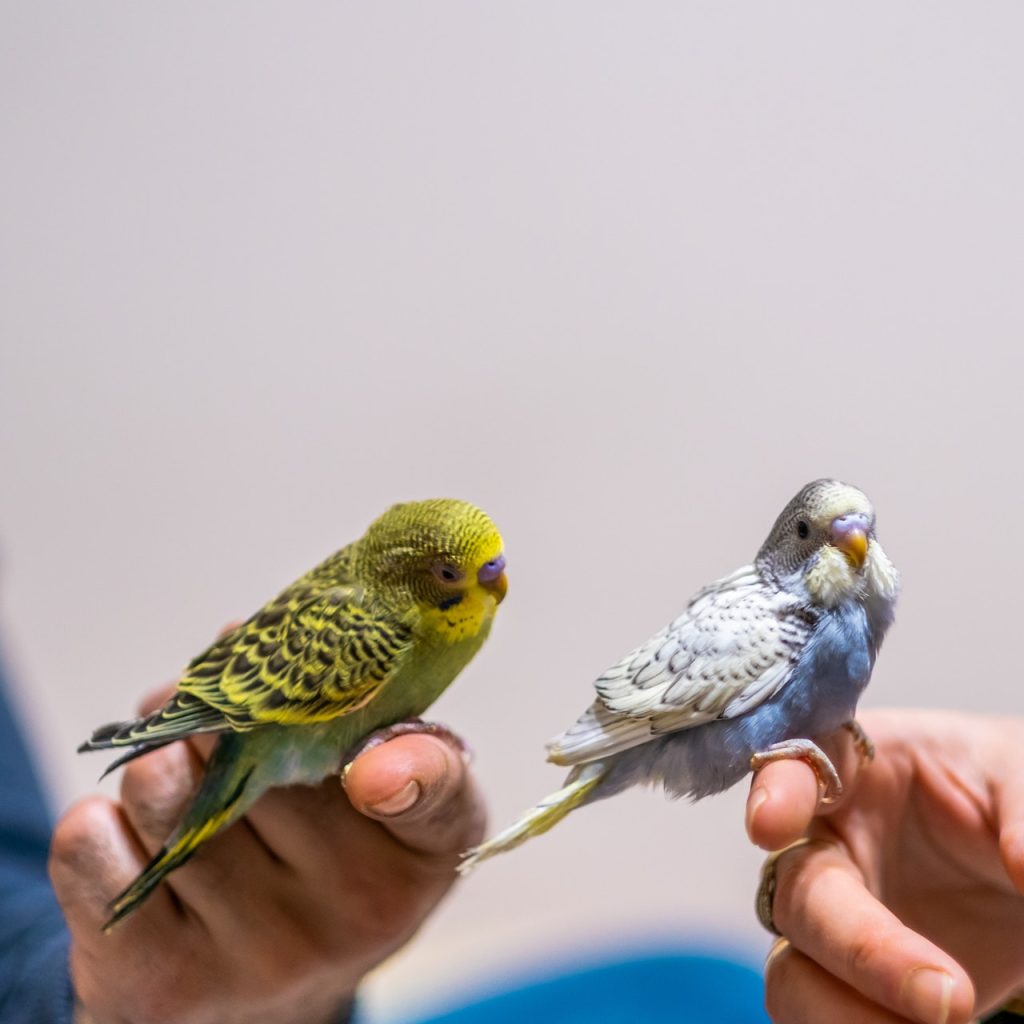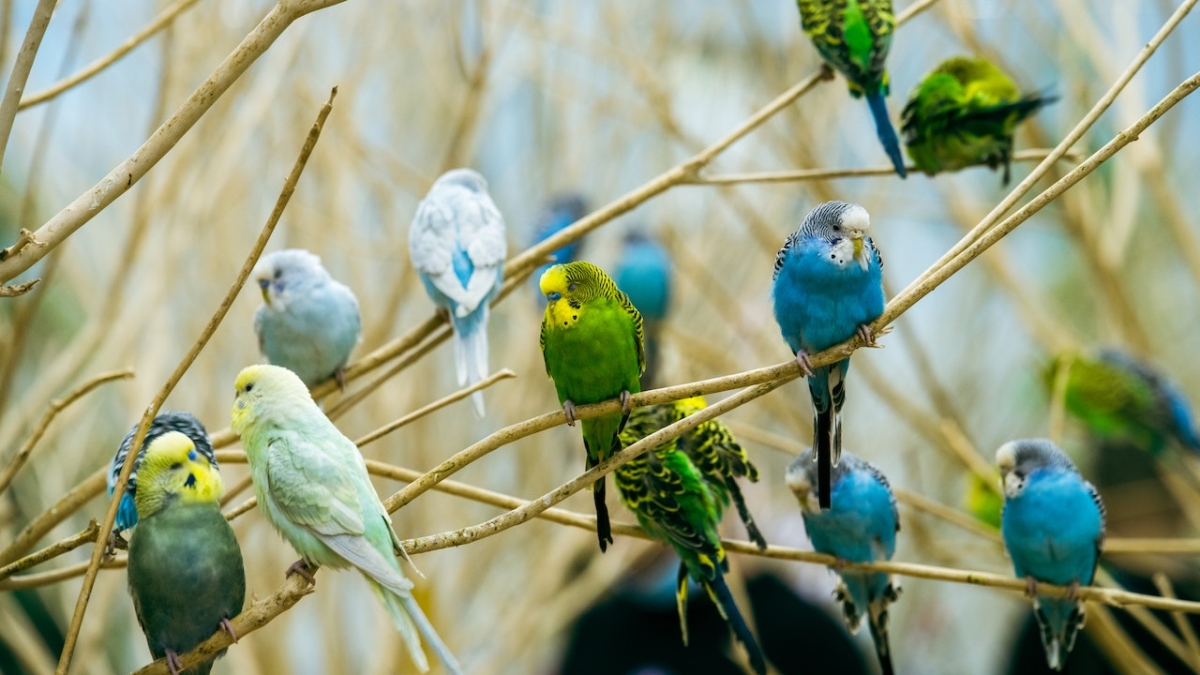Welcome to our website, where we delve into the world of Australian parrots, captivating creatures known for their stunning beauty, and immense popularity among bird enthusiasts. As responsible caretakers, we understand the vital role that nutrition plays in ensuring the health, vibrancy, and overall well-being of these remarkable avian companions. In this comprehensive guide, we will explore the various aspects of the Australian parrot diet, equipping you with the knowledge to provide optimal nutrition for your feathered friends.
Australian parrots, with their colorful plumage and playful personalities, require a well-rounded and balanced diet to thrive in captivity. By providing a diet that meets their specific nutritional needs, you can enhance their longevity and vitality.
To ensure that your Australian parrots receive the nutrition they require, it is important to understand the key components of their diet. A well-balanced diet for Australian parrots typically consists of seed mixes, pelleted diets, fresh fruits, and vegetables.

Understanding Australian Parrot Diet
A well-rounded and balanced diet is crucial for Australian parrots, providing essential nutrients for their health, vibrant plumage, and longevity. In this section, we explore the significance of a balanced diet and the key components: seed mixes, pelleted diets, fresh fruits, and vegetables.
A balanced diet is vital for Australian parrots, ensuring their overall well-being. By offering a variety of foods, you provide essential vitamins, minerals, and antioxidants that support their health.
Seed mixes are a fundamental part of an Australian parrot’s diet, offering a range of seeds like sunflower and millet. Choose high-quality mixes formulated for parrots to meet their nutritional needs.
Pelleted diets provide a balanced and complete nutrition source. They come in various sizes and shapes, mimicking diverse foods. Gradually transition your parrot to pellets, following recommended portion sizes.
Fresh fruits and vegetables add vital nutrients and dietary fiber. Apples, berries, carrots, leafy greens, and bell peppers offer a variety of vitamins and minerals. Wash and prepare them for easy consumption.
Incorporating a well-rounded diet with seed mixes, pelleted diets, fresh fruits, and vegetables is essential for Australian parrots. Transitioning gradually and following portion sizes ensures optimal nutrition.
Furthermore, by providing a balanced diet, you support the overall health and well-being of your Australian parrot. Additionally, incorporating nutrient-rich seed mixes, pelleted diets, and fresh fruits and vegetables ensures a diverse and nutritious menu for your feathered companion. Moreover, it is important to gradually introduce new foods and follow recommended portion sizes to promote a successful transition.
Nutritional Needs of Australian Parrots
Australian parrots have specific nutritional requirements that are essential for their health and vitality. In this section, we will delve into their specific needs, highlighting the importance of essential nutrients, vitamins, and minerals in their diet. We will also emphasize the significance of a varied diet to meet their diverse nutritional needs.
To ensure the well-being of your Australian parrot, it is crucial to provide them with a balanced diet that meets their specific nutritional requirements. Essential nutrients, including proteins, carbohydrates, and fats, are the building blocks of a healthy diet for these magnificent birds.
Proteins are vital for the growth, maintenance, and repair of tissues. Including high-quality protein sources in their diet, such as lean meats, eggs, and legumes, is crucial for Australian parrots. These protein sources provide the necessary amino acids for their overall health.
Carbohydrates serve as an energy source for Australian parrots, supporting their daily activities and metabolic processes. Incorporating whole grains, such as brown rice and quinoa, along with fruits and vegetables, ensures a steady supply of carbohydrates.
Fats play a vital role in maintaining a healthy cardiovascular system, providing insulation, and aiding nutrient absorption. Including healthy fats from sources like nuts, seeds, and avocados can contribute to the overall well-being of your parrot.
In addition to macronutrients, Australian parrots require an array of vitamins and minerals to support their physiological functions. Vitamin A is essential for maintaining good eyesight and a healthy immune system. It can be found in orange-colored fruits and vegetables like carrots and sweet potatoes. Vitamin D is crucial for calcium absorption, which promotes strong bones and beak health. Natural sunlight exposure or providing a vitamin D-fortified diet helps meet this requirement.
Optimal Feeding for Australian Parrots
Seed Mixes
Seed mixes are vital for Australian parrots, providing essential nutrients and serving as a foundation for their diet. These high-quality blends offer a rich source of energy, nutrients, and fatty acids, supporting overall health. Common seeds found in these mixes include sunflower, safflower, and millet. Sunflower seeds are rich in fats and proteins, while safflower seeds have lower fat content. Millet provides carbohydrates, vitamins, and minerals. When choosing a mix, opt for those specifically formulated for parrots to ensure they meet their unique nutritional needs.
Pelleted Diets
Pelleted diets provide a convenient way to meet Australian parrots’ nutritional requirements. They offer complete and balanced nutrition, containing proteins, carbohydrates, fats, vitamins, and minerals. These diets feature high-quality ingredients like grains, legumes, fruits, and vegetables, combined with fortified pellets to ensure a diverse and appealing taste.
When selecting a pelleted diet for your parrot, consider their specific species’ nutritional needs. Look for products labeled for cockatiels, budgies, or cockatoos, as different parrot species have varying requirements. Additionally, choose pellets that suit your bird’s beak size and texture preference, whether larger and crunchy or smaller and softer.
To introduce a pelleted diet, gradually mix small amounts with their existing food, increasing the proportion over time. This gradual transition allows them to adapt to the new taste and texture while maintaining familiarity with their current diet.
Fresh Fruits and Vegetables
Fresh fruits and vegetables are vital for Australian parrots, providing essential vitamins, minerals, and antioxidants. In this section, we’ll emphasize their importance, suggest safe options, and highlight the significance of proper washing and preparation.
Including a variety of fresh produce in your parrot’s diet is crucial for their overall health. These nutrient-rich foods contain vitamins (such as C and A) and beneficial plant compounds, promoting strong immunity and healthy feathers.
For safe and nutritious choices, consider apples, carrots, leafy greens like kale and spinach, and berries such as blueberries and strawberries. These options offer antioxidants and natural sweetness.
To ensure their safety, wash fruits and vegetables thoroughly under running water, avoiding chemical-based cleaners. Peel or remove seeds from certain items, as they may be toxic or hard to digest for parrots.
Introducing fresh produce can be done in different ways—whole pieces, sliced or incorporated into homemade birdie chop mixes. Adapt the presentation to your parrot’s preferences for better acceptance.
Nuts and Legumes
To enhance the nutritional value of Australian parrots’ diet, incorporating nuts and legumes is highly beneficial. These nutrient-rich foods provide essential healthy fats and protein, promoting their overall health and well-being. In this section, we will delve into the advantages of incorporating nuts and legumes, presenting a selection of suitable options such as almonds, walnuts, peanuts (in moderation), chickpeas, and lentils. It is crucial to remember the importance of moderation when including these foods in their diet.
First and foremost, nuts are an excellent source of healthy fats and protein. Almonds and walnuts, in particular, are packed with beneficial nutrients that contribute to the parrots’ overall health. They offer a satisfying crunch and a rich, nutty flavor that is often enjoyed by these magnificent birds. Additionally, peanuts can be introduced in moderation, provided they are unsalted and free from additives. However, it is important to note that peanuts should not make up a significant portion of their diet.
Legumes, on the other hand, provide a combination of protein, dietary fiber, and essential minerals. Chickpeas and lentils are popular choices, offering a variety of nutrients that support their well-being. These legumes can be cooked and offered to parrots in small portions. Incorporating them into homemade birdie treats or mixing them with other food items can add a delightful twist to their diet.
Supplements and Other Considerations For Parrots
Calcium and Mineral Supplements
Maintaining adequate calcium levels is crucial for the overall well-being of Australian parrots, specifically in terms of their beak and bone health. In this section, we will delve into the importance of calcium and explore different sources that can provide this essential mineral. Additionally, we will discuss the benefits of using items such as cuttlefish bone, mineral blocks, and calcium-fortified treats as calcium sources. Lastly, we will emphasize the importance of seeking guidance from an avian veterinarian to determine the specific mineral supplementation needs of your parrot.
Calcium plays a vital role in the development and maintenance of strong bones and a properly formed beak in Australian parrots. Insufficient calcium levels can lead to abnormalities and weaken their skeletal structure, increasing the risk of fractures and beak-related issues.
To ensure your parrot receives sufficient calcium, it is recommended to offer a variety of calcium sources. One such source is cuttlefish bone, a natural and readily available option that parrots can chew on to obtain calcium. It provides both physical and nutritional benefits for their beak and bone health.
Mineral blocks, composed of calcium carbonate and enriched with trace elements, offer a continuous supply of calcium as parrots actively chew on them. These blocks provide a convenient and long-lasting option for maintaining optimal calcium levels.
Additionally, calcium-fortified treats are specially formulated to provide a concentrated source of calcium. These treats can be a valuable addition to your parrot’s diet, offering a supplemental boost of this essential mineral.
Water Requirements
To keep your Australian parrot healthy, it’s important to provide them with fresh, clean water. Here, we’ll highlight the significance of regular water changes, discuss different ways to offer water, and emphasize the importance of hydration for your parrot’s well-being.
Water is vital for your parrot’s health and bodily functions. Ensure they always have access to clean water, changing it frequently, ideally every day, and rinsing the bowl thoroughly before refilling.
You have options for water presentation. Consider placing multiple bowls in their cage or using a water bottle attached to the cage, ensuring a continuous supply of fresh water and reducing contamination risks.
Monitor their water consumption and check containers for cleanliness. If you notice discoloration or debris, promptly replace the water and clean the container.
By providing fresh water, changing it regularly, and using suitable methods, you can keep your Australian parrot hydrated and healthy. Monitor their water intake and maintain clean water containers for a refreshing drinking experience.
Final Words
Providing a balanced and species-appropriate diet is crucial for the health and well-being of Australian parrots. It is important to understand that each parrot species has unique nutritional requirements. To ensure you are meeting their specific needs, consulting with avian experts or experienced breeders is highly recommended. These professionals can offer personalized guidance based on their expertise and knowledge of parrot nutrition. By seeking their advice, you can create a tailored diet plan that promotes optimal health, vibrant plumage, and overall happiness for your beloved Australian parrot. Remember, investing in their dietary needs is an investment in their long-term well-being.
